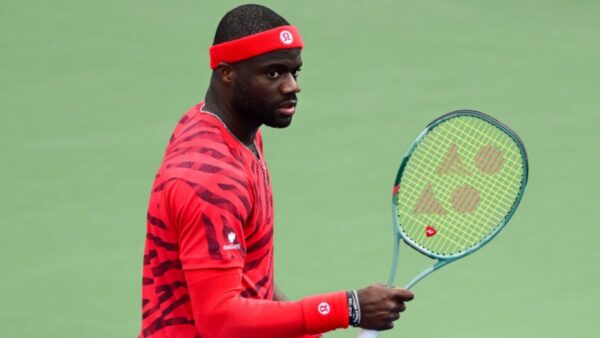Dana White’s UFC face $1.6 Billion in damages as judges deny appeal in anti-trust lawsuit case
Discover the legal battle threatening the UFC, claims of anti-competitive actions, and the potential billion-dollar consequences, shedding light on fighter pay disparities and the future of MMA.

Dana White and the UFC face anti-trust lawsuit (Image via: X/MMA Fighting)
🔍 Explore this post with:
The UFC is the leading global mixed martial arts organization with Dana White at its helm. It is now in the thick of a substantial anti-trust lawsuit. Recent events have hindered UFC’s attempts to fend off this controversial legal challenge. Two judges of the 9th Circuit Court of Appeals denied the UFC’s appeal bid. This denial aims to reverse a ruling that gave class-action status to fighters suing the UFC.
MMA Fighting was the first to report on the recent legal developments.
Veteran UFC fighters, Cung Le, Jon Fitch, and Kyle Kingsbury are leading the charge in the lawsuit. They claim that UFC adopted anti-competitive actions which led to reduced fighter pay. Claims of the UFC using anti-competitive strategies are Central to this lawsuit. These strategies allegedly lowered fighter pay which in turn affected many athletes’ earnings. Moreover, the UFC might face a substantial amount of damages if found liable for the offense.
Estimates suggest amounts from $800 million to a staggering $1.6 billion. If proven true, this could affect more than a thousand fighters who fought for the UFC between the timeframe of 2010-2017. This case has the potential to become a pivotal moment in combat sports history.
The enactment of The Muhammad Ali Boxing Reform Act or the Ali Act is at present the most pivotal moment in boxing. If the clash action lawsuit becomes successful, it would certainly be the biggest in MMA.
UFC’s legal troubles have pointed to the problem of fighter pay. Many criticize the organization for its revenue-sharing model. When comparing UFC to major sports leagues in the USA like the NFL, NBA, and MLB, the criticism intensifies exponentially. Moreover, the lawsuit brings the issue of fighter pay to the forefront.
Fighter pay in the UFC and second antitrust lawsuit against the UFC
Some revelations have shed light on UFC’s operations as the lawsuit progressed. Key among these are details from fighter contracts. The fight purses of Khabib Nurmagomedov, the former UFC lightweight champion, was taken as a case study. Unfortunately, the findings underscored pay differences within the UFC.

The current lawsuit covered up to 2017. Unfortunately, another challenge looms for the UFC. Kajan Johnson, a former UFC fighter, spearheads a second antitrust lawsuit. This case pertains to the period after 2017. Thus broadening the range of UFC’s legal concerns. These combined lawsuits emphasize the pressing need to revisit the UFC’s compensation policies.
The outcomes of these lawsuits could bring about major shifts in fighter compensation in the world of MMA. Moreover, the main lawsuit is possibly headed to trial around March or April 2024. The UFC now stands at a pivotal juncture. It must address fighter pay issues and its legal responsibilities.
In case you missed it!
- Israeli MMA fighter writes names of Muslim fighters Khabib Nurmagomedov, Islam Makhachev, and Khamzat Chimaev on war missile targeted at Palestine
- Charles Oliveira calls out UFC critics revealing true dedication to regain championship glory







